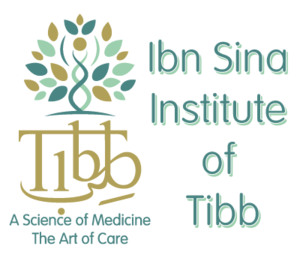The History of medicine is as old as the history of man, with Tibb, also known as Unani-Tibb which translates to Greek Medicine, being documented for close to five-thousand years. Learn about the evolution of Tibb through the centuries of historic periods, and how this holistic system of medicine has been overshadowed with the dominance of current Western medicine.
The Historical progress of Tibb over the centuries
| Before Common Era: | Egyptian Era | Imhotep (2980-2600 BCE) |
| Before Common Era: | Greek Era | Hippocrates (460-370 BCE) humoral theory |
| 000-0530 | Greco-Roman Era | Galen (129-200 CE) Temperamental theory |
| 0530-1300 | Arab Era | Ibn Sina (980-1037 CE) practice of medicine |
| 1300-1800 | Tibb in Europe | Culpepper (1616-1654 CE) |
| 1200-present | Tibb in Indian subcontinent | Well established hospital, clinics |
| 1997-present | Tibb in South Africa | Allied Health Professions Council of South Africa (AHPCSA) 2001 |
We ask, what happened to this system of 2500 years?
Well, it seems to have been overshadowed only in the past two centuries. This happened through technological advancements and discoveries into the complex structure and function of the human body, and more particularly, with the advent of the microscope which enabled identification of bacteria.
All of this resulted in the holistic/integrated approach of physical, mental, emotional and spiritual aspects of the cause/s of health and disease being replaced with a reductionist approach as in the doctrine of specific aetiology where most illness conditions are limited to a single cause. For example, HIV causes Aids, Mycobacterium tuberculosis causes TB or a breakdown in communication between the nervous and muscular system results in Parkinson’s.
In addition to the doctrine of specific aetiology, the advancements in diagnostic imaging technology of sonars, CT and MRI scans, the development of synthetic chemical medication and without a doubt the advancement in sophisticated surgical procedures, has led to the current dominance of the practice of Western/conventional medicine.
Nevertheless, both Tibb and Western medicine have a common heritage to the founders of medicine. Hippocrates, Galen and Ibn Sina. This could well be the basis for a successful partnership in Integrative Medicine where the philosophy of yesterday could be integrated with the technology of today. Interestingly renewed interest in Tibb is taking place in different parts of the world, for example, in China it is known as Urghur medicine, in Iran as Persian medicine, Anatolian medicine in Turkey and European traditional medicine in Europe.
In conclusion, with its tried and tested philosophical principles, which provides a comprehensive understanding, of not only the cause/s of illnesses and the application of treatment, but also actively promoting health and wellness. Tibb, without a doubt is perfectly placed to address the global challenges facing healthcare today.




